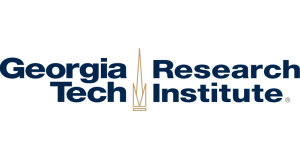Poultry Tech Summit Menu
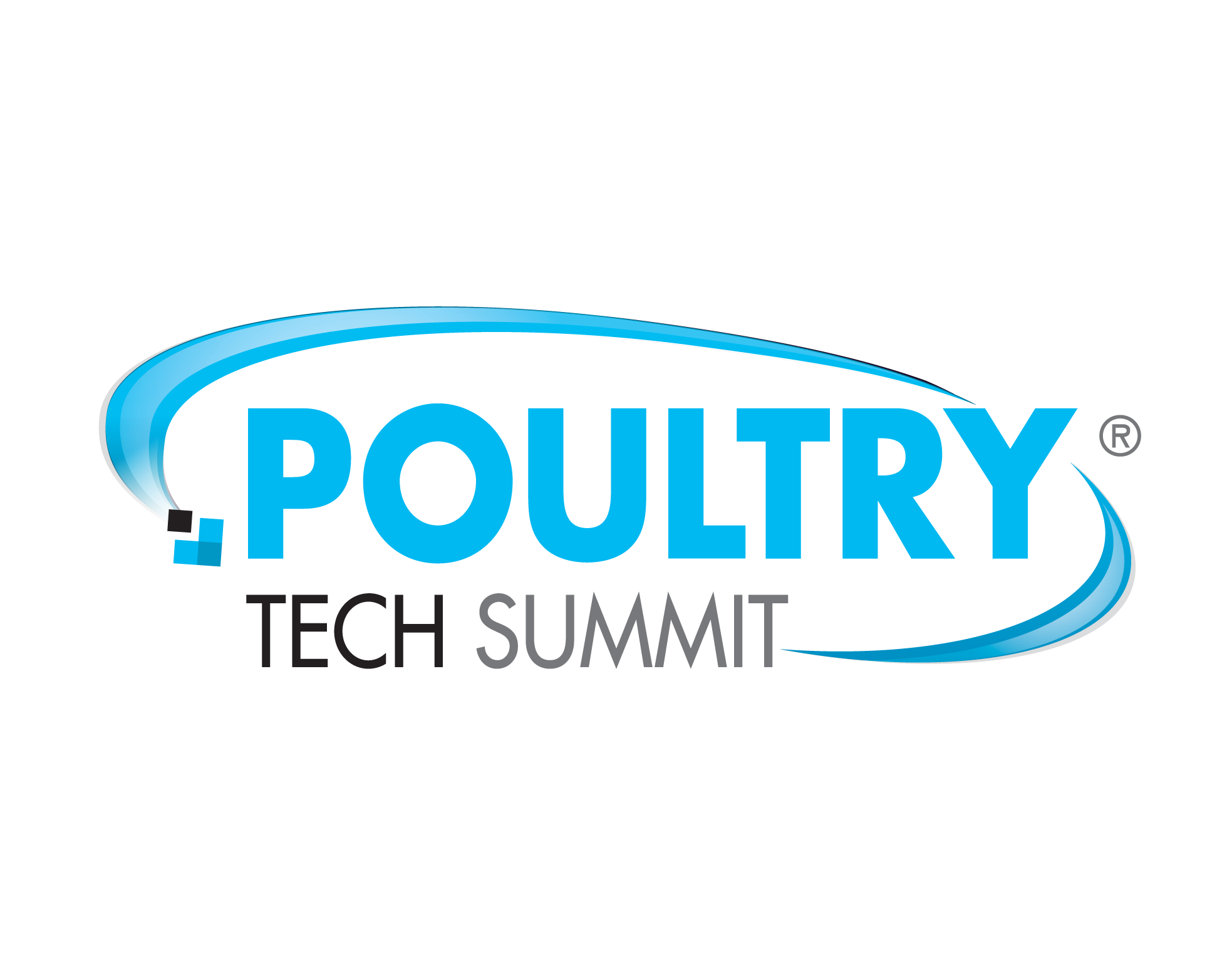

RESERVE YOUR SEAT | Nov. 3-5, 2025
In collaboration with US-RSPE Annual Meeting: Nov. 4-5, 2025
Poultry Tech Summit
Atlanta Airport Marriott in Atlanta, Georgia
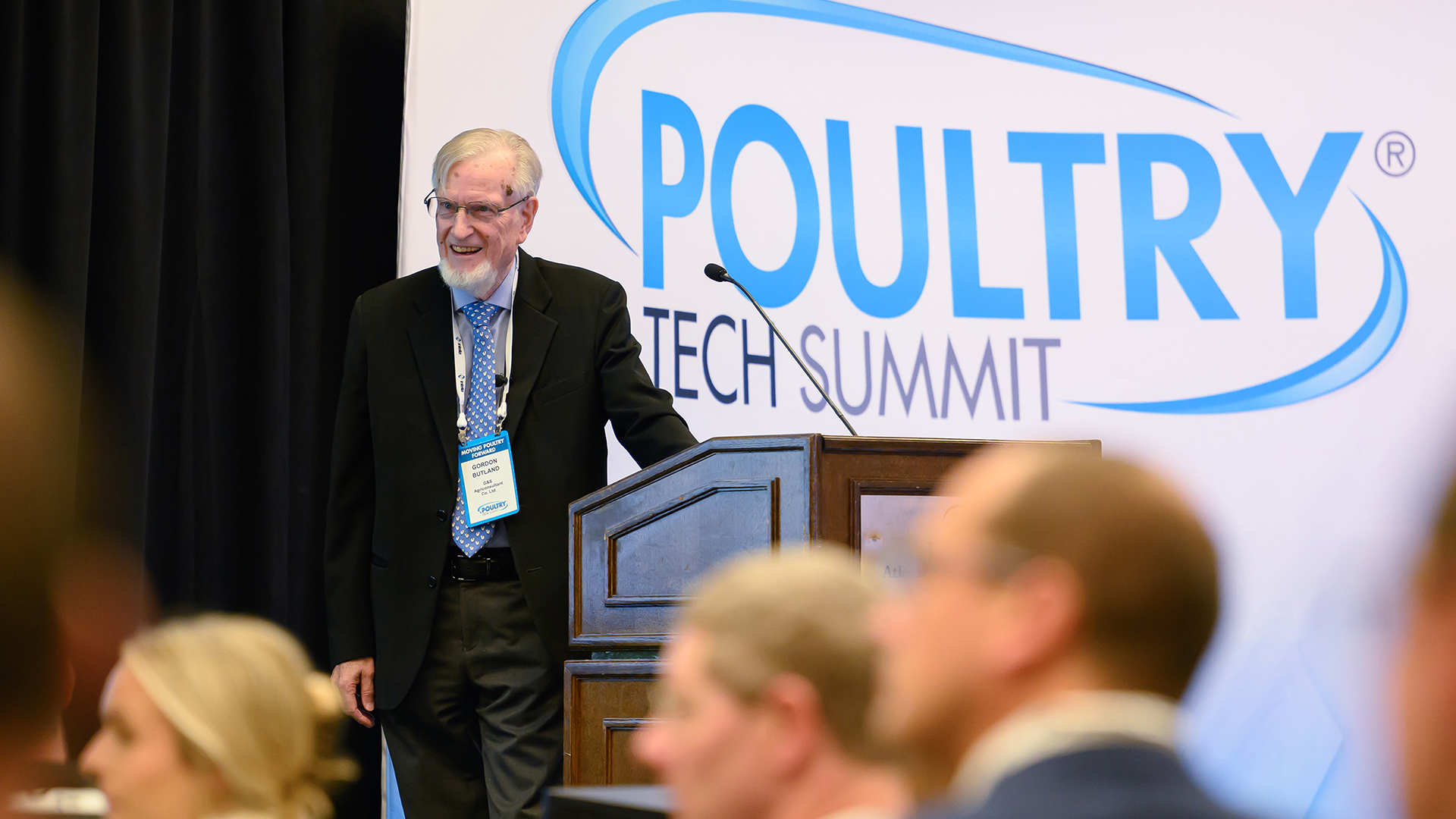
Poultry Tech Summit returns as an in-person event on November 3-5, 2025, at the Atlanta Airport Marriott in Atlanta, Georgia.
Poultry Tech Summit brings together inventors, researchers, entrepreneurs, poultry industry professionals and established technology providers to discuss challenges and solutions for all aspects of the poultry supply chain. The event focuses on the transition of innovative technologies from researchers and entrepreneurs into commercial applications for the benefit of the poultry industry.
 NEW in 2025, Poultry Tech Summit will be held in collaboration with the U.S. Roundtable for Sustainable Poultry and Eggs (US-RSPE) annual meeting held November 4-5, 2025. The combined events will focus on animal health, welfare, biosecurity, food safety, sustainability and technology. This is your chance to network and learn from professionals actively working to improve poultry production.
NEW in 2025, Poultry Tech Summit will be held in collaboration with the U.S. Roundtable for Sustainable Poultry and Eggs (US-RSPE) annual meeting held November 4-5, 2025. The combined events will focus on animal health, welfare, biosecurity, food safety, sustainability and technology. This is your chance to network and learn from professionals actively working to improve poultry production.
Attendees can expect the same groundbreaking innovation and insightful presentations that made the previous events well-attended with deep dialogue on new prospective solutions and next-generation technologies.
Registration is now open with early savings available until September 30.
Make plans to attend and take a look at the future of the industry.
Highlights from Poultry Tech Summit 2023
The global destination for new poultry innovations
Since its 2018 inception, the Poultry Tech Summit has facilitated and fast-tracked many pioneering ideas into adoption for the benefit of the poultry supply chain. Innovator success stories:
- Wayne-Sanderson Farms, TARGAN to expand partnership
- Diversified Agriculture partners with broiler chick sexing startup
- JBS, Tyson Foods invest in poultry worker wearables
- OpsSmart wins FDA Food Traceability Challenge
- AGCO purchases poultry welfare robotics developer Faromatics
Get Poultry Tech Summit event coverage, here.
Attend
Showcasing the next frontier for industry, technology and venture capital, this unique event presents new research of technologies with potential to be commercialized within a 5-year period. Ranging from artificial intelligence, robotics, blockchain, sensors, virtual reality, vaccines and more to improve outcomes for poultry companies in all aspects of production from farm through the processing plant.
Registration fees to attend:
Registration is now open with early registration savings available until September 30.
Attendees can choose to register for either Poultry Tech Summit, the US-RSPE Annual Meeting, or a combination pass that provides full access to both event programs and networking functions.
Poultry Tech Summit includes: 1-1/2 days of educational presentations, opening cocktail reception, joint reception with US-RSPE members, breakfasts, lunch and multiple networking breaks.
- General attendee: early bird rate $995 USD ($1195 after Sept. 30)
US-RSPE annual meeting includes: 1 day of educational presentations, opening joint reception with Poultry Tech Summit attendees, breakfast, lunch and closing reception.
- Member of US-RSPE: early bird rate $400 USD ($450 after Sept. 30)
- Non-members: early bird rate $500 USD ($550 after Sept. 30)
COMBO pass for both events:
- Member of US-RSPE: early bird rate $1195 USD ($1445 after Sept. 30)
- Non-members: early bird rate $1295 USD ($1545 after Sept. 30)
Reduced ticket prices are available for university faculty, students and presenting innovators.
Who should attend:
- Poultry company C-level executives
- Corporate leaders in QA/QC, R&D, IT and Engineering
- Live production and processing technology personnel
- Veterinarians, nutritionists
- Suppliers interested in funding or acquiring new tech
- Financiers, bankers and venture capitalists
Attendees are among the first to see groundbreaking innovation and next-generation technologies that offer prospective solutions to poultry supply chain challenges.
Poultry Tech Summit Agenda
Monday, November 3
3-6:30 pm
Registration
Location: Conference Lobby
5-6:30 pm
Poultry Tech Summit opening reception
Location: B+PDR
Tuesday, November 4
7 am-5:30 pm
Registration
Location: Conference Lobby
7:30-8:30 am
Breakfast
Location: Southern Ballroom
8:30-8:45 am
Welcome
Location: Salons D-H
Greg Watt, president and CEO, WATT Global Media
8:45-9:15 am
Location: Salons D-H
How emerging technologies and AI are impacting genetic selection, and how this will change poultry farming
Jesus Arango, DVM, Ph.D., director of research and development, head of global trait development, Cobb-Vantress
Primary breeders are generating unprecedented volumes of data as they work to extract broiler and breeder phenotypes objectively and in a high-throughput manner. The integration of machine learning and artificial intelligence is enabling the creation and analysis of these complex datasets, unlocking actionable insights. Innovative data collection methods — ranging from multi-omics and environmental monitoring to digital phenotyping — are having a significant impact on breeding strategies. These technologies not only enhance genetic selection but also offer new opportunities for poultry producers to improve bird health, welfare, and performance across the value chain.
9:15-9:45 am
Location: Salons D-H
Innovation presentations
Using gradual egg warming to lower embryo mortality and improve chick quality – Joost ter Heerdt, commercial director, HatchTech Group
At top performing hatcheries, 14.2% of the total eggs set fail to hatch, representing an average infertility rate of 5.4% and an average embryo mortality rate of 8.8%. The highest percentage of embryo mortality occurs during the first four days of incubation, compared to the remainder of the incubation period. Gradual egg warming over a six-day period has been shown to reduce embryo mortality and improve chick quality. Doing this extends the incubation period by three days. Learn how these changes to incubation can be implemented.
Enhancing hatchery efficiency with AI-powered MRI egg assessment – Jennifer Volz, head of global business development, Orbem USA Inc
Orbem has developed an AI-powered MRI system that scans up to 24,000 eggs per hour with 99% accuracy in commercial hatcheries. The technology non-invasively identifies unfertilized eggs before incubation, improving hatchability and optimizing incubator capacity. It also enables sex determination in table egg layer strains at 11 to 12 days of incubation. Beyond that, the system analyzes phenotypic traits, detects blood and meat spots, and measures molecular content — all without cracking a single egg. These insights enable earlier, data-driven breeding decisions and support the elimination of day-old male chick culling in the layer industry.
9:45-10 am
Location: Salons D-H
Tech Talk: Insights to Impact: AI in Modern Poultry Farming
Ali Murtaza Solangi, CEO, Poulta Inc.
The poultry industry generates massive amounts of data, but how can it be turned into real impact? This talk explores how artificial intelligence (AI) and computer vision collect and transform raw data into actionable insights in real-time. This will help the poultry industry optimize productivity, feed performance, improve bird health, improve supply and demand management, and make smarter decisions, demonstrating the tangible impact of AI in poultry technology.
10-10:30 am
Morning coffee break
10:30-11:30 am
Location: Salons D-H
Technology presentations
The sustainable poultry industry 4.0 framework – Amit Morey, Ph.D., associate professor, poultry science, Auburn University
The sustainable poultry industry 4.0 (SPI 4.0) framework represents a next-generation, technology-integrated vision for modernizing poultry processing. Harnessing the power of industry 4.0 tools — including artificial intelligence, machine learning, internet of things, robotics and cloud-based platforms — SPI 4.0 addresses persistent inefficiencies and data silos within the vertically integrated poultry supply chain. At the heart of SPI 4.0 are cutting-edge sensing technologies such as microwave-based meat quality assessment, multimodal sorting systems, hyperspectral imaging for biofilm detection and Raman spectroscopy for rapid pathogen detection from farm to fork. These innovations are connected through real-time, AI-powered analytics and interactive dashboards, enabling processors to make timely, informed decisions on quality, safety and throughput.
Validating pre-op sanitation with color, fluorescent spectrometry – Clark Griscom, graduate assistant and student, department of food science, University of Arkansas
Quality assurance technicians rely on their senses of sight, touch and smell, or take swab samples in hard-to-clean areas to be sure the food contact surfaces are clean prior to start-up. How reliable are the current methods for detecting contamination after cleaning? Color and fluorescent spectrometry can be used to detect organic poultry contamination at rapid rates. Handheld color and fluorescent spectrometers were tested and found to be capable of detecting chicken contamination using model diluted chicken and water solutions. Using a model with learning capabilities we can detect a percentage of how clean or dirty the surface is.
Room-temperature plasma for reducing microbial load on chicken parts – Katherine Sofia Sierra Melendrez, graduate student, Auburn University
High microbial load on raw chicken parts may contribute to the quality deterioration and reduce the shelf life. Reducing microbial load can potentially extend shelf life, lowering costs and reducing food waste. Room-temperature plasma generates ions and reactive oxygen and nitrogen species (RONS) that effectively damage bacteria in food products without negative effect on product quality. Room-temperature, plasma-generating devices are user-friendly and cost-effective for industrial applications.
11:30 am-12 pm
Location: Salons D-H
Tech Talk: Practical use of egg antibody technology to improve animal livability and immune function
Troy Lohrmann, Ph.D., founder and president, Sustainable Life Sciences Consulting LLC
Based on sales data, over the past decade, five to seven of the top 10 human pharmaceutical drugs are based on antibody technology. Numerous pathogens over time have developed ways to modulate or evade a host’s immune system. This presentation discusses the practical application of a novel, all-natural egg-based antibody technology designed to enhance animal immune function and livability in agriculture, highlighting its emergence as a first-in-class solution in the animal health industry. It reviews research supporting this technology’s role in countering pathogens that evade immune responses.
Tech Talk: Genesys, optimizing poultry sustainability and economics
Danilo Okada, global poultry director of customer value and strategic partnerships, Ceva
An introduction to Ceva’s automatic broiler gender sorting, Genesys, and how it’s added value for the poultry industry from an economic and sustainability standpoint.
12-1:30 pm
Lunch
Location: Southern Ballroom
1:30-2:15 pm
Location: Salons D-H
Panel discussion: Poultry health & welfare challenges, where could innovation help?
Innovative technologies have fueled continuous improvement in the health and wellbeing of broilers, layers and turkeys. The panel will discuss current health and welfare challenges and areas of live production and bird handling. Join in the discussion as poultry producers, researchers and inventors share ideas and work to find solutions for today’s challenges.
Confirmed panelists:
- Becky Tilley, DVM, senior veterinarian and director, Butterball pathology laboratory, Butterball
- Shawna Weimer, Ph.D., assistant professor, department of poultry science, director, Center for Food Animal Wellbeing, University of Arkansas
- Suzanne Young McComb, DVM, director, key account veterinarian, Boehringer Ingelheim Animal Health USA
2:15-3 pm
Location: Salons D-H
Innovation presentations
Electrostatic spraying for poultry disinfection – Bruce Whiting, owner and chairman, Electrostatic Spraying Systems Inc.
Electrostatic Spraying Systems Inc. was created with the revolutionary idea of reducing chemical and water usage in agriculture and disinfection, while allowing the farmer or processor to achieve complete, confident, coverage of the targeted objects. The “wrap-around” effect of electrostatic spraying provides coverage both in front, but also underneath, around and behind. Within just the past couple of years, this same technology has provided major intervention breakthroughs and savings in the chicken processing industry through the efficient application of traditional disinfectants, such as PAA, but also in making new ecologically friendly antimicrobials such as bacteriophages affordable to the processing plant.
High-velocity microdroplets to eliminate chemicals in poultry carcass cleaning – Twan Koenen, processing and hygiene technologist, Innovative Water Concepts
This groundbreaking microdroplet cleaning technology represents a paradigm shift for poultry processing — fully eliminating reliance on chemical processing aids like peracetic acid or chlorine. Using solely potable water, it aligns seamlessly with the EU’s stringent “potable water-only” processing standards, setting a new global benchmark. This technology harnesses the power of compressed air and potable water, generating high-velocity microdroplets that deliver 50–100 times greater kinetic cleaning energy per gallon compared to conventional methods.
Phage-based platform for bacterial control in poultry – Hans Pieringer, co-founder and CEO, PhageLab
PhageLab has developed a biotechnology platform that integrates molecular diagnostics, artificial intelligence, and predictive modeling to detect, design and scale highly specific bacteriophage solutions, helping control diseases such as Salmonella and E. coli. This is a fully integrated, end-to-end technology engineered for precision from diagnosis to application. Built and refined over more than 14 years of research, the platform is now positioned to expand across Latin America and into the United States.
3-3:30 p.m.
Afternoon coffee break
3:30-4 pm
Location: Salons D-H
Innovation presentations
Plasma-enabled wearable air curtain for personal respiratory protection – Herek Clack, Ph.D.,co-founder and chief scientific officer, Taza Aya, and associate professor at the University of Michigan
The wearable air curtain issues from a nozzle array attachment to existing hard hats or bump caps. The electrical and mechanical components that produce the air curtain, including a non-thermal plasma treatment process to neutralize airborne viruses, are contained within a backpack. The system has been shown to neutralize more than 95% of airborne viruses and provides 99.8% protection against inhalation of viral aerosols. The wearable air curtain provides protection without facial irritation or ear loop pain, with no increase in breathing resistance, while maintaining physical access to and clear visibility of the worker’s face for uncompromised verbal and non-verbal communication.
The future of poultry is female: Only “Lady Layer” chicks – Amanda Kowalczyk, Ph.D., CEO, Hatched Genetics
Hatched Genetics’ proprietary chicken gene-editing platform can introduce any trait — such as the ability to lay only female embryos — into chickens using computationally guided design. First, Blank Slate surrogate chickens are developed to host genetically modifiable embryos. Then, a treatment-based genetic construct is inserted to create Lady Layers in a single generation. Treated hens produce only female offspring; untreated birds can be bred to propagate the trait. Lady Layers integrate into existing breeding infrastructure the same as any other chicken genetic line. Future generations of Lady Layers can be bred by mating untreated hens and roosters, while treated hens only produce female offspring. Pullets from treated Lady Layers are not genetically modified, so eggs for customers are non-GMO, helping to address consumer concerns about GM foods.
4-4:15 pm
Location: Salons D-H
Tech Talk: Pioneering poultry’s future: Humane, efficient and sustainable
Yuval Cinnamon, Ph.D., principal investigator, The Volcani Institute; founder and CSO, NextHen
NextHen, founded in 2018 as a joint venture with The Volcani Institute of Israel’s Ministry of Agriculture, pioneers genetic innovations that are reshaping the future of poultry. Through cutting-edge genome editing, the company develops complementary solutions seamlessly integrated into breeding programs. Its flagship technologies include Golda, which eliminates male chick culling in the egg-laying sector, and Layers Laying Broilers (LLB), which enables layer hens to produce broiler chicks at scale.
4:15-5 pm
Location: Salons D-H
Panel discussion: Poultry supply chain sustainability, where could innovation help?
Increased efficiency, producing more with less, is usually the aspect of sustainability improvement with the highest return on investment. The panel will discuss current areas of sustainability that are most challenging. Join in the discussion as poultry producers, researchers and inventors share ideas and work to find solutions for today’s challenges.
Confirmed panelists:
- Brian Kiepper, Ph.D., associate professor, poultry science, University of Georgia
- Cameron Sanders, corporate director of animal health & welfare and sustainability, Peco Foods
- Rachel Sanborn, director of sustainability, MPS Egg Farms
5-6:30 pm
Poultry Tech Summit & US-RSPE networking reception
Location: B+PDR
Wednesday, November 5
7:30 am-12 pm
Registration
Location: Conference Lobby
7:30-8:30 am
Breakfast
Location: Southern Ballroom
8:30-9:15 am
Innovation presentations
Location: Salons D-H
Scalable camera-based poultry monitoring – Imtiaz Shams, CEO, FLOX
FLOX is building the digital infrastructure for next-generation poultry production by turning off the shelf cameras and IoT sensors into always-on eyes inside the barn. Using proprietary computer vision and deep learning models, FLOX non-invasively monitors commercial broiler flocks at scale; automatically tracking key metrics like weight, activity, flock uniformity, and behavior. Today, they monitor over 60 million birds annually and are targeting 1 billion birds in the next three years. By digitizing bird-level data and integrating it with the sector’s existing rich agri-input and factory data, we provide producers, integrators, and input companies with actionable intelligence to improve animal health, welfare, and operational efficiency.
Utilizing existing farm sensor data to identify triggering of the birds’ immune response – David Speller, CEO, Optifarm
Optifarm is utilizing existing on farm data and its artificial intelligence techniques to find and interrogate changes in bird activity and behavior on farm. Most commonly, the data captured and utilized by the system is derived from the farm environmental control panels, of which the company has built a connection to most in the market today. This makes Optifarm’s health innovation totally agnostic, not requiring any of its own hardware to be deployed on farm; all that is required is a remote connection to existing farm data. The system can detect the innate immune response of birds on farm by primarily tracking subtle changes in the drinking routines of those birds.
Achieving autonomy in harvest planning with AI and computer vision – Po-Ju (Ray) Chiu, co-founder and CEO, Calyx Inc.
The Calyx system combines plug-and-play AI vision systems with proprietary machine learning algorithms trained to detect and predict average weight and weight distribution across a chicken house. These insights feed directly into a harvest planning engine that automatically generates optimal harvest schedules — maximizing birds within target weight, minimizing rejects, and ensuring plants are accurately and efficiently filled with birds aligned to the business unit’s needs. All of this is done without sampling or manual weighing, and with no intervention required from farm staff.
9:15-10 am
Location: Salons D-H
Tech Talk: Better feed logistics is your biggest savings opportunity – Ben Allen, CEO, BinSentry
Feed is the most expensive part of raising birds, but most companies are still basing their feed logistics on data that is manually collected by farmers and field technicians. Humans are good at a lot of things, but guessing how much feed is in a large metal bin is not one of them. Digitizing feed logistics by using sensors is the single best opportunity for poultry companies to save money.
Tech Talk: Artificial Intelligence in Hatcheries: Turning Concepts into Reality – Ramin Karimpour, founder and CEO, TARGAN
TARGAN has made significant advances in applying artificial intelligence to transform poultry production. This session will provide an update on where TARGAN stands today, highlight how TARGAN’s technologies are impacting producers — both those sexing chicks and those not yet doing so — with measurable benefits across hatcheries, farms, and processing plants, and outline upcoming innovations that will further enhance efficiency, consistency, and value in the global poultry industry.
Tech Talk: Precision downtime, turning hidden costs into measurable gains
Troy Hatlevig, vice president of product, Ancera
Downtime is one of the most overlooked drivers of lost yield and inflated costs in poultry production. Learn how a data-driven approach to downtime optimization can unlock millions in recoverable profit by aligning measurable inputs like bird health, labor, and more. This session will cover how producers can identify hidden inefficiencies, implement actionable insights, and shift from reactive to proactive downtime management
10-10:30 am
Coffee break
10:30 am -11:30 am
Location: Salons D-H
Innovation presentations
Process monitoring on poultry deboning lines – Wayne Daley, Ph.D., CEO, WDDLY Associates
Real-time monitoring and feedback control are critical for optimizing performance, improving yields and reducing losses on deboning lines. This system introduces a vision-based approach for monitoring deboning operations and providing actionable, real-time data for control and decision-making. The system uses a combination of 2D imaging and 3D depth data to estimate residual meat after processing steps for leg or breast deboning using traditional and machine learning approaches. The system provides flexibility to add sensors as required for particular applications. The key benefit of this approach offers is the ability to continuously assess process performance.
Data-driven poultry biosecurity through waste stream analysis – Michael Rhys, CEO and co-founder, Barnwell Bio
Barnwell Bio’s technology leverages metagenomic sequencing and bioinformatics to analyze environmental samples collected from poultry operations. The platform detects the presence and abundance of pathogens at the strain level, potentially before symptoms manifest, providing producers with actionable intelligence. The software translates complex genomic data into clear, actionable recommendations for producers and veterinarians, enabling rapid response to emerging health threats. The goal is to help contain outbreaks, evaluate biosecurity protocols, and ultimately save producers money and time.
Phosphorus absorption optimizer for poultry diets – Luciano Andriguetto, Ph.D., professor, Universidade Federal do Paraná
A novel molecule, a polyol of a long chain fatty acid, has been developed which captures calcium and phosphorous as they are ionized by the low pH or released by the phytases. This creates an organic form of these minerals, which is efficiently absorbed as a lipid droplet. Calcium and phosphorus absorption of most ingredients is under 80%, with a fairly high variability. When the calcium or phosphorus is bound to the lipid molecule, not only absorption is more efficient but also these minerals now circulate as a fatty acid, being more available for all tissues, like bone and oviduct. The molecule is also an emulsifier, improving the ME of the diet by about 36 kcal/kg.
Endolysins for controlling Clostridium septicum in turkeys – Kane Miller, Ph.D., CEO and founder, Axitan
Novel antibacterial enzymes, called endolysins, are being used in a product called Force3 by Axitan to target Clostridium perfringens, the bacteria responsible for necrotic enteritis in broilers. The product nutritional benefits since it contains microalgae and mid- and long-chain fatty acids. Endolysins work by rapidly targeting and bonding to the cell wall of the target pathogen, quickly weakening the cell wall causing it to burst and safely disintegrate. The mode of action of endolysins is not considered to be triggering antimicrobial resistance by the scientific community. The company is now developing endolysins for control of Clostridium septicum, one of the major causative agents of clostridial dermatitis in turkeys.
11:30 am
Poultry Tech Summit concludes
Poultry Tech Summit Speakers

Ben Allen
Under Ben Allen’s leadership, BinSentry is scaling rapidly as it uses artificial intelligence to provide customers with market-leading accuracy and automation. BinSentry is installing nearly 2,000 new sensors every month for some of the largest agricultural companies in North America as they work to support increases in worker safety and decreases in operating costs. Allen joined BinSentry after his successful run as head of global market development at Indigo Ag, an agtech startup. Prior to that role, he led efforts to scale Agri-Trend’s Agri-Data software organization in preparation for its acquisition by Trimble (NASDAQ: TRMB) in 2015.
Tech Talk: Better feed logistics is your biggest savings opportunity

Luciano Andriguetto, Ph.D.
Andriguetto and three partners founded Global Feed Solutions in 2019. The company is dedicated to locally producing innovative products. In 2020, as head of R&D, he invented a new application of a molecule, aimed at optimizing the absorption of calcium and phosphorus from the diet of layers, broilers, breeders and swine in all phases. A Brazilian patent was recently published and a patent has also been applied for in the U.S. and in the Patent Cooperation Treaty countries. Andriguetto holds a Ph.D. in animal science and nutrition from Cornell University, B.Sc. and M.Sc. degrees in veterinary medicine from Universidade Federal do Paraná.
Presentation: Phosphorus absorption optimizer for poultry diets

Jesus Arango, DVM, Ph.D.
Jesus Arango, DVM, Ph.D., is responsible for driving the program development of the broiler breeding program from measuring traits using the latest available technologies to optimizing population structure for maximizing genetic gain, developing best-in-class genetic prediction models and progressing any other areas that would lead to continual improvement of egg production traits. Prior to joining Cobb, he worked more than 20 years in academia and over 10 years with Hy-line International. Arango earned his DVM from Universidad Central de Venezuela, Facultad de Ciencias Veterinarias. He went on to achieve his master’s degree in animal breeding and genetics from Universidad Central de Venezuela, Facultades de Agronomía y Ciencias Veterinarias, and a Ph.D. in animal breeding and genetics from University of Nebraska-Lincoln (UNL).
How emerging technologies and AI are impacting genetic selection, and how this will change poultry farming

Po-Ju (Ray) Chiu
Po-Ju (Ray) Chiu began his entrepreneurial journey as a co-founder of BioInspira, a sensor technology company spun out from his research as a biochemical engineering student at the University of California, Berkeley, and the Lawrence Berkeley National Laboratory. Calyx’s AI-powered vision systems and edge sensing platforms provide real-time weight and weight distribution data for broiler chickens, enabling more precise harvest planning, feed optimization, and nutrition strategies. The company’s technology is deployed across the U.S., Latin America, Europe and Asia — empowering producers and integrators with actionable, real-time data.
Presentation: Achieving autonomy in harvest planning with AI and computer vision

Yuval Cinnamon
Yuval Cinnamon is an embryologist specializing in poultry genetics and biotechnology. He earned his master’s degree and Ph.D. at the Hebrew University of Jerusalem, plus completed postdoctoral fellowships there and at the National Institute for Medical Research in London. His research integrates bioinformatics, molecular genetics, embryology, cell biology and advanced imaging to investigate early embryogenesis in chickens. Among his key innovations are Golda, a genetic solution that ensures only female chicks hatch, and Layers Laying Broilers (LLB), a breakthrough technology enabling layer hens to produce broiler chicks efficiently and humanely.
Presentation: Pioneering poultry’s future: Humane, efficient and sustainable

Herek L. Clack, Ph.D.
Herek Clack, Ph.D., is the co-founder and chief scientific officer for Taza Aya, and associate professor of civil and environmental engineering at the University of Michigan. Clack’s research group focuses on chemical and biological aerosols and their interactions with electric fields and electrical discharges. He is the recipient of the XVI Distinguished Young Alumni/ae award (MIT, 2000), the NSF CAREER Award (NSF, 2004), the Harry J. White Award for Outstanding Achievement in the Science and Application of Electrostatic Precipitation (International Society for Electrostatic Precipitation, 2013), and the Kenneth M. Reese Outstanding Research Scientist Award (Univ. of Michigan College of Engineering, 2019). He earned an S.B. in aeronautical and astronautical engineering from MIT, and a master’s degree and Ph.D. in mechanical engineering from the University of California, Berkeley.
Presentation: Plasma-enabled wearable air curtain for personal respiratory protection

Wayne Daley, Ph.D.
Wayne Daley, Ph.D., is a retired principal research engineer from the Georgia Tech Research Institute’s (GTRI) Intelligent Sustainable Technologies Division. He has over 30 years of experience serving in management and technical leadership roles in the Agricultural Technology Research Program (ATRP). Daley is currently the CEO of WDDLY Associates. In this role he oversees the development of sensing systems to support collaborative automation in poultry secondary and further processing operations. Daley received his degrees from the Georgia Institute of Technology in mechanical engineering.
Presentation: Process monitoring on poultry deboning lines

Clark Griscom
Griscom is a master’s student in food science at the University of Arkansas, working under Dr. Philip Crandall. He earned his bachelor’s degree in food science from the University of Arkansas in 2023 and is on track to complete his master’s degree in December 2025. His research focuses on using color and fluorescent spectrometry to detect poultry contamination on food contact surfaces. He has a strong interest in artificial intelligence and is experienced in applying AI tools to support automation and data analysis in food safety applications. He also frequently collaborates with agricultural engineers on projects that integrate robotics into poultry processing and food safety systems.
Presentation: Validating pre-op sanitation with color, fluorescent spectrometry

Troy Hatlevig
As VP of Product at Ancera, Troy Hatlevig brings operational discipline and user-focused design expertise for complex logistics and data systems. Troy is a product leader with experience innovating operations at Wayfair Freight and Monster.com.
Tech Talk: Precision downtime, turning hidden costs into measurable gains

Joost ter Heerdt
With over 20 years of industry experience, Joost ter Heerdt has led HatchTech to become a leading player in poultry incubation technology, now serving clients in more than 40 countries. Under his leadership, the company continues to innovate and maximize the genetic potential of poultry. He has played a pivotal role in developing some of the world’s largest, most advanced hatcheries, serving well-known industry brands. He holds a bachelor’s degree in agriculture from Harper Adams University and a master’s degree in economics from Radbound University.
Presentation: Using gradual egg warming to lower embryo mortality and improve chick quality

Ramin Karimpour
Ramin Karimpour is the founder and CEO of TARGAN. His passion has been conceiving innovative solutions and making them a reality. To date, Karimpour has launched over 140 bio-systems and industrial automation products while creating manufacturing facilities in China, India, the EU, Latin America and the United States. He has led business operations, R&D, engineering and sales teams for Dolan Jenner Industries, Applied Science & Technology, PerkinElmer, Kodak Molecular Imaging, MIDAS Vision Systems, Spire Corporation, Pfizer and Zoetis. Karimpour received his bachelor’s degree and master’s degree in electrical engineering from Boston University, and post-graduate certifications from Sloan School of Management, Massachusetts Institute of Technology, and the University of Massachusetts, in plasma processing and executive management. Karimpour founded TARGAN to create products that address animal welfare and financial performance in animal agriculture
Teck Talk: Artificial Intelligence in Hatcheries: Turning Concepts into Reality
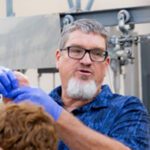
Brian Kiepper, Ph.D.
Brian Kiepper, Ph.D., is an associate professor and extension specialist of poultry science at the University of Georgia. Kiepper’s work during his 27 years at the university focuses on environmental areas of water use and conservation, wastewater generation and treatment, and waste reduction and by-product recovery in poultry processing plants and other commercial and industrial facilities. He is also an adjunct faculty member for the university’s college of engineering. Prior to coming to the university in 1998, Kiepper was the assistant director of water and wastewater services for Rockdale County, Georgia, where he oversaw wastewater treatment and laboratory facilities, and the industrial pretreatment program. Brian received his bachelor’s degree from Tennessee Tech University, and his master’s degree in food science and his Ph.D. in poultry science from the University of Georgia.
Panelist: Technologies for sustainable poultry production

Twan Koenen
Twan Koenen has over two decades of deep expertise in animal processing technology and hygiene innovation. In his roles as processing technologist, R&D developer and farm manager in in both poultry and red meat sector, he combines a strong technical and analytical background with a holistic approach on improving both product and processing hygiene in the meat industry. He is responsible for innovation, technological support and implementation of multi hurdle cleaning approach: a hygiene concept for meat processing that improves both visual and microbial product hygiene.
Presentation: High velocity microdroplets to eliminate chemicals in poultry carcass cleaning

Troy Lohrmann
Troy Lohrmann is a multidisciplinary nutritionist and biochemist with four decades of expertise in poultry and swine science, microbiology, and nutritional optimization. His career spans roles in technical service, sales, research leadership and recently retired as the CEO of a U.S. animal health company focused on antibiotic-free health solutions. His travels have had him working with leading producers, processors and manufacturers across the globe. Lohrmann holds numerous patents that integrate scientific research with practical applications in the areas of animal health, nutrition, seed traits and grain processing.
Tech Talk: Practical use of egg antibody technology to improve animal livability and immune function

Amanda Kowalczyk, Ph.D.
Amanda Kowalczyk, Ph.D., is an evolutionary genomicist specializing in computationally guided trait design. She is the CEO and co-founder of Hatched Genetics, where she leads efforts to create the first commercially available genetically engineered chickens in the United States. She is committed to bridging the gap between cutting-edge genomic science and the real-world needs of poultry farmers to improve outcomes for both chickens and people. Kowalczyk earned her Ph.D. in computational biology from Carnegie Mellon University and the University of Pittsburgh.
Presentation: The future of poultry is female: Only “Lady Layer” chicks

Suzanne Young McComb
Suzanne Young McComb, DVM, brings extensive poultry industry leadership and technical expertise to Boehringer Ingelheim. Her career spans more than 20 years, including roles as a technical service veterinarian for Aviagen, a private poultry veterinary consultant, and a broiler production veterinarian, most recently with Pilgrim’s. She serves as executive vice president of the American Association of Avian Pathologists since 2016, reflecting her deep commitment to advancing the field. A native of Texas, she earned her bachelor’s degree and master’s degree in poultry science, her DVM from Texas A&M University, followed by a master’s degree in avian medicine from the University of Georgia.
Panelist: Poultry health & welfare challenges, where could innovation help?

Kane Miller, Ph.D.
Kane Miller, Ph.D., founded Axitan in 2017 to apply endolysin biotechnology for managing pathogens in animal agriculture. He earned his biochemical engineering doctorate from University College London. Over the last eight years, Miller has led the development of Axitan’s technology platform, which quickly pairs endolysins with pathogens and brings new endolysin-based products to market. Axitan is headquartered in Comer, Georgia, where the company’s production facilities are located. Miller splits his time between the U.S. and Axitan’s research and development center in the U.K.
Presentation: Endolysins for controlling Clostridium septicum in turkeys

Katherine Sofia Sierra Melendrez
Katherine Sierra is a graduate student studying poultry food science. In addition to her current work on effectiveness of room temperature plasma technology, she has worked with engineering bioplastics with biopolymers and antimicrobials to improve Listeria monocytogenes control in ready-to-eat foods stored over 12 weeks. Originally from Honduras, Sierra holds bachelor’s and master’s degrees in food science and technology engineering from Zamorano University and Auburn University, respectively.
Presentation: Room temperature plasma for reducing microbial load on chicken parts

Amit Morey, Ph.D.
Amit Morey, Ph.D., specializes in innovative technologies to improve poultry and seafood safety, quality, processing efficiencies combined with AI/ML. He is the founder and co-founder of technology start-ups, SENS-D LLC, TraceR2C LLC and Eternal Engines. Before joining Auburn’s faculty in 2015, Morey held leadership roles in the food industry, including serving on the board of directors at the national proteins and food distributors association and principal scientist at food safety net services. He was selected for the New Innovator in Food and Agriculture Research Award in 2018. Morey earned his Ph.D. in poultry science from Auburn University, following an master’s degree in seafood science from the University of Alaska Fairbanks, a master’s degree in fishery science and technology from the University of Agricultural Sciences Bangalore, and a bachelor’s degree in fish and fisheries science from Dr. B.S. Konkan Agricultural University.
Presentation: The sustainable poultry industry 4.0 framework

Ali Murtaza Solangi
Ali Murtaza Solangi is an entrepreneur and technologist best-known as the founder and driving force behind Poulta Inc., a startup transforming poultry farming with AI-powered management systems. Under his leadership, Poulta has become an agricultural technology leader, delivering IoT-driven systems for thermal control, predictive analytics, enhanced productivity, animal welfare and sustainability. Solangi holds over 10 patents across IoT, healthcare-focused IoT, and energy/utility algorithms and devices, an embodiment of his forward-looking mindset.
Presentation: Insights to Impact: AI in modern poultry farming
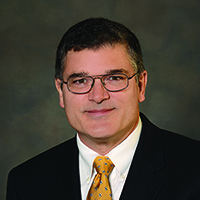
Terrence O’Keefe
Terrence O’Keefe began his association with the poultry industry in graduate school and has been working with and writing about poultry for 36 years. In his role as content director at WATT Global Media, O’Keefe leads a team of 24 reporters, editors and artists who cover the world’s poultry, animal feed and pet food industries. He has written for and edited publications covering the broiler, turkey and egg industries. Prior to joining WATT, he worked for broiler and turkey companies in variety of live production and processing roles including serving as manager for broiler and turkey slaughter and deboning plants. O’Keefe earned a bachelor’s degree in biology at the College of William & Mary, a master’s degree in poultry science at the Pennsylvania State University and an MBA at James Madison University.
Moderator

Danilo Okada
Prior to joining Ceva last year, Danilo Okada held several positions in the field of sales, ranging from Commercial Operations in Brazil then Singapore and country director in Southeast Asia, to global integrated business planning in UAE within international companies such as BRF Dubai and Enerpac Tool Group. He holds a bachelor’s degree in mechanical engineering from Universidade Estadual Paulista and a master’s degree in business administration, finance, accounting and control from the University of Sao Paulo, Brazil. He furthered his training with a high-performance leadership program at Singapore’s IMD Business School.
Tech Talk: Genesys, optimizing poultry sustainability and economics

Hans Pieringer
Hans Pieringer is the co-founder and CEO of PhageLab, a biotechnology company based in Chile with a strong presence in Brazil. PhageLab tackles antibiotic resistance in the livestock and poultry industries through bacteriophage-based solutions. Pieringer holds a master’s degree in biotechnology from Universidad Andres Bello.
Presentation: Phage-based platform for bacterial control in poultry

Michael Rhys
Michael Rhys is the CEO and cofounder of Barnwell Bio, an animal health intelligence platform powered by waste streams. Barnwell Bio’s mission is to take the guesswork out of animal health by providing farmers and veterinarians with cost effective and actionable insights on disease, nutrition and more. Previously, Rhys was the chief of staff at Biobot Analytics, the company that scaled up the first national Covid-19 wastewater surveillance system. He has a master’s degree in economics from the University of Cambridge and a bachelor degree in economics from Dartmouth College.
Presentation: Data driven poultry biosecurity through waste stream analysis

Cameron Sanders
Beginning his career with Peco in 2016, Cameron Sanders started his journey in developing the company’s policy, training and auditing programs specific to biosecurity and animal welfare, where he would assume the role of animal health and welfare manager, with a supporting role in Peco’s sustainability efforts in 2021. He has since assumed the role in leading Peco’s initiatives in sustainable poultry production and animal well-being. His primary mission is to support the Peco team in identifying operational solutions that yield sustainable outcomes and doing what is right by the animals Peco depends on by promoting their health and welfare. Sanders holds a bachelor’s degree with a specialization in poultry science from Mississippi State University.
Panelist: Poultry supply chain sustainability, where could innovation help?

Imtiaz Shams
Shams is a founding partner of Post Urban Ventures, a venture builder that builds & invests in deep tech businesses, with a recent exit of the Microsoft funded generative AI startup Hazy. He is the CEO of FLOX, a U.S. & UK based business applying the best of machine vision & machine learning to chicken farming, to improve the welfare of birds. They’ve received investment from the funders of companies like AirBnB, Pinterest, Square (Block) & Flexport.
Presentation: Scalable camera-based poultry monitoring
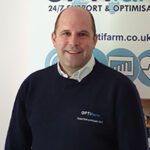
David Speller
From a varied agricultural background in cropping Speller moved into the poultry sector when he purchased a broiler farm in 2004 in the U.K. and from scaling that business and discovering a need to use his own data in new ways, David Speller has since gone on to establish a global artificial intelligence business, Optifarm. The company focuses on uncovering and understanding the cause-and-effect information held within existing, readily available, poultry farm data.
Presentation: Utilizing existing farm sensor data to identify triggering of the birds’ immune response

Becky Tilley, DVM
Becky Tilley, DVM, is a graduate of North Carolina State University College of Veterinary Medicine and is a Diplomate of the American College of Poultry Veterinarians. She is a senior veterinarian and director of the NPIP (National Poultry Improvement Plan) certified Butterball Pathology Laboratory. Tilley has been employed by Butterball LLC for 26 years where she is responsible for turkey health and welfare in North Carolina operations. She is PAACO (Professional Animal Auditor Certification Organization) certified as a Poultry Welfare Auditor. Tilley has authored numerous scientific presentations and publications, in-house publications, and field trials. She is an active member of the American College of Poultry Veterinarians, American Association of Avian Pathologists, Association of Veterinarians in Turkey Production, National Turkey Federation and American Veterinary Medical Association.
Panelist: Technologies to improve bird health, welfare and performance

Jennifer Volz
Jennifer Volz leads Orbem’s market expansion across Europe, Asia and North America. A key force behind the commercial deployment of Orbem’s AI-powered MRI technology, she helped scale the innovation from pilot to more than 100 million eggs scanned globally. Now based in the U.S., she played a central role in opening Orbem’s U.S. office and building partnerships with leading hatcheries. Her work supports the poultry industry’s shift toward earlier, non-invasive identification of unfertilized and male eggs, eliminating chick culling and optimizing incubation. Volz holds a master’s degree in engineering from Loughborough University in the U.K.
Presentation: Enhancing hatchery efficiency with AI-powered MRI egg assessment

Greg Watt
Greg Watt is the president, chief executive officer and agrifood group publisher for WATT Global Media where he directs the company strategic vision, corporate culture, business growth and acquisitions. He joined the company in 1993, and in 2007 became the fourth generation to lead the company, which was founded in 1917 with the purchase of Poultry Tribune magazine by James W. Watt, his great-grandfather. Watt currently serves as the Communications Working Group Chair for the International Poultry Council and is a member of the NPFDA Scholarship Selection Committee. He directed and founded the Poultry Tech Summit, which is hosted every other year in Atlanta in collaboration with University of Georgia department of Poultry Science, Georgia Tech Research Institute, and USPOULTRY, and facilitated partnership with the National Chicken Council to produce the annual Chicken Marketing Summit. He is publisher of Egg Industry, WATTPoultry USA, Feed & Grain, WATTPoultry International, Executive Guide to World Poultry Trends, Feed Strategy, and the annual WATT IPPE Directory, now in its 40th year in cooperation with the IPPE.

Shawna Weimer, Ph.D.
Shawna Weimer, Ph.D., is an assistant professor in the Department of Poultry Science, and
director for the Center for Food Animal Wellbeing at the University of Arkansas. Her experience in the agricultural industry informs her innovative research and active collaboration with industry organizations. She was honored with the Early Career Award for Extension from the Poultry Science Association. Weimer supports experimental and field research projects to improve cattle and poultry welfare and hosts an annual symposium at the Don Tyson Center for Agricultural Studies. Additionally, she is a founding member of the Poultry Extension Collaborative. Weimer holds bachelor’s degrees in animal science and animal ecology, a master’s degree in animal physiology from Iowa State University, and a Ph.D. in Poultry Science from the University of Arkansas.
Panelist: Poultry health & welfare challenges, where could innovation help?

Bruce Whiting
Twenty-five years ago, Bruce Whiting recognized the long-term worldwide benefits of a revolutionary spray technology, developed at the University of Georgia. This spray system converts one normal-sized droplet, through patented and proprietary technologies, into nearly one thousand small droplets. Then an electrostatic charge is induced onto each droplet to achieve maximum coverage when spraying water-based solutions. Even though Electrostatic Spraying Systems has applied this technology in countless agricultural applications, what is truly exciting is how it is now being utilized to make food safer and better. Whiting earned a bachelor’s degree in accounting and a Juris Doctor degree from Brigham Young University.
Presentation: Electrostatic spraying for poultry disinfection
US-RSPE Annual Meeting Agenda
Tuesday, November 4
5-6:30 pm
Poultry Tech Summit & US-RSPE joint networking reception
Location: B+PDR
Wednesday, November 5
7:30 am-12 pm
Registration
8-9 am
Breakfast
Location: B+PDR
9-10 am
Committee meeting: Framework
Location: Salon D
11 am-12 pm
Continuous improvement committee meeting and membership committee meeting
Location: Athens
12-1 pm
Lunch
Location: B+PDR
1-2 pm
Bridging sectors for sustainability: A case study
Ethan Carter, director of sustainability, Darling Ingredients and Ryan Backman-Flamerich, senior manager, environmental sustainability, United Airlines
Sustainability doesn’t happen in silos. This presentation highlights how cross-sector collaboration between the poultry industry, rendered products and the sustainable aviation fuel (SAF) market is unlocking new value chains. Attendees will gain insights into how partnerships between the rendering and aviation industries are advancing decarbonization goals, the role of agriculture in circular economies, and how the poultry sector can become a strategic player in renewable energy. With SAF demand on the rise, this is a timely opportunity to discuss practical pathways for aligning sustainability goals, sharing resources, and driving innovation together.
Location: Athens
2-3 pm
How urban environmental work supports rural agriculture communities
Mike Vinciquerra, business development director, Trees Atlanta
Environmental programs designed for urban areas don’t stop at city limits — the impact of those efforts extends to the farmland, timberlands and communities that support the poultry industry. This session will provide an overview of the work Trees Atlanta and its partners are doing to support the urban forests of metro Atlanta. Trees Atlanta will share the impact urban trees have locally as well as the benefits those trees provide downstream and in rural areas where those benefits might be less obvious. They will also share how the industry can proactively engage in shaping solutions that benefit both urban and rural stakeholders including implementing planting programs in their own communities.
Location: Athens
3-4 pm
Navigating the sustainability legal landscape: An update on rapidly shifting laws, policies and regulations
Chris Schlag, counsel, Nixon Peabody
This presentation provides a comprehensive overview of the evolving legal frameworks impacting sustainability efforts in the agricultural industry across multiple jurisdictions. It will examine key international, federal and state-level developments related to packaging, product stewardship and environmental compliance. Special attention will be given to progressive sustainability and climate-related regulations and how they are influencing broader U.S. policy trends, alongside developments in other states advancing similar initiatives. The session also explores the European Union’s increasingly stringent climate and sustainability mandates, highlighting their global implications for compliance and corporate strategy. Attendees will gain valuable insights into how the agricultural industry can adapt to and stay ahead of regulatory changes in a complex and rapidly shifting legal environment.
Location: Athens
4-5 pm
Turning sustainability goals into action: Practical strategies from leading organizations
Sustainability goals are foundational, but the true impact lies in how organizations bring them to life. This panel brings together leaders from organizations across poultry to discuss how their sustainability commitments align with real-world implementation. Panelists will share how their organizations have created to move from data and vision to action. Attendees will gain insight into goal setting, measuring progress and building organizational alignment to support long-term sustainability objectives.
Panelists:
- Lankford Ruffin, director of environmental affairs and sustainability, Butterball
- Andy Rojeski, head of strategy, investor relations and net-zero programs, Pilgrim’s
Emily Battilega, director of sustainability, Versova
Location: Athens
5:30-7:30 pm
US-RSPE networking reception
Location: Lounge
Thursday, November 6
8-9 am
Breakfast
Location: B+PDR
9-10 am
Board meeting
Location: Salon D
US-RSPE Annual Meeting Speakers

Emily Battilega
As the director of sustainability, Emily Battilega oversees the application and implementation of sustainability guidelines across Versova, leads the measurement of the company’s sustainable efforts, and partners with the sales and marketing team to engage with customers in partnership for the development of sustainable supply chains. A valued team member for more than eight years, Battilega has led Versova’s sustainability initiatives since taking on her current role in 2022. The Versova family of companies houses over 38 million laying hens in the U.S.
Panel Discussion: Turning sustainability goals into action: Practical strategies from leading organizations

Ethan Carter
Ethan Carter has served as Darling Ingredients’ director of sustainability since August 2022. Prior to joining Darling Ingredients, he led sustainability efforts for ExxonMobil’s unconventional business and oversaw development of a multi-billion-dollar greenhouse gas reduction strategy for the Permian Basin, targeting net-zero emissions by 2030. Carter has more than 10 years of experience in a variety of environmental and sustainability roles in the energy industry. He holds a master’s degree in sustainable business from Marylhurst University and a bachelor’s degree in chemical engineering from the University of Arkansas.
Presentation: Bridging sectors for sustainability: A case study

Ryan Backman-Flamerich
Ryan Backman-Flamerich is a senior manager on United Airlines’ decarbonization team responsible for the airline’s procurement of sustainable aviation fuel (SAF). Prior to joining United, he led project teams in Deloitte’s ESG consulting practice supporting clients in the transportation, hospitality and services sector as well as in the food land and agriculture sector. Backman-Flamerich earned a master’s degree in business administration from Harvard Business School, and a bachelor’s degrees in chemical engineering and political science, both from the University of Alabama.
Presentation: Bridging sectors for sustainability: A case study

Andy Rojeski
In his current role as head of strategy, investor relations and net-zero programs for Pilgrim’s, Rojeski manages sustainability efforts for U.S.-based operations, including the development and execution GHG reduction activities through the supply chain, notably Scope 3. In addition, he manages engagement with the financial community and select corporate development activities. Previously, Rojeski spent nearly 15 years at Tyson Foods, where he held a variety of senior leadership positions. He graduated with distinction from the University of Michigan with a bachelor’s degree in accounting, and he earned a master’s degree in business administration from the University of Chicago in strategic management and finance.
Panel Discussion: Turning sustainability goals into action: Practical strategies from leading organizations

Lankford Ruffin
Lankford Ruffin has over 30 years of experience as an environmental professional serving in the food, automotive and nuclear industries. He has been with Butterball for over a decade and has been involved in everything from acquisitions, sustainability efforts, various construction projects and a host of environmental compliance matters. Lanford earned a master’s degree in environmental engineering from Washington State University. He is a current board member and a past chair for the US-RSPE. Ruffin is also a member of the North Carolina Chamber environmental policy committee.
Panel Discussion: Turning sustainability goals into action: Practical strategies from leading organizations

Chris Schlag, J.D.
Chris Schlag, J.D., advises clients on a wide range of environmental, social and governance issues, providing strategic and practical guidance. She helps clients navigate emerging challenges by finding policy, regulatory and transactional solutions to manage complex ESG risks. Schlag earned a Juris Doctor from the University of Pittsburgh School of Law.
Presentation: Navigating the sustainability legal landscape: An update on rapidly shifting laws, policies and regulations

Mike Vinciquerra
Mike Vinciquerra is responsible for cultivating the organization’s corporate relationships to drive both volunteer engagement and financial support while helping companies meet their own community goals. He also manages Trees Atlanta’s municipal relationships, working with local government officials to drive tree planting and forest restoration in their communities. Mike obtained his bachelor’s degree in business administration from Ohio University and his master’s degree in business administration from Duke’s Fuqua School of Business, holding the Chartered Financial Analyst designation.
Presentation: How urban environmental work supports rural agriculture communities
Location: Atlanta Airport Marriott
All Poultry Tech Summit and the US-RSPE annual meeting activities will be hosted at the Atlanta Airport Marriott. The hotel is conveniently located near the Hartsfield Jackson Atlanta International Airport and offers easy access to College Park, GA, the Atlanta Motor Speedway, Peachtree City, downtown Atlanta and the Lakewood Amphitheatre.
The group rate starts at $209 per night, plus applicable state and local taxes. A credit card is needed to make a reservation. In order to ensure the best possible rate and room availability, all reservations require a one-night, non-refundable deposit, per room, upon reservation.
EVENT APP
Download the Poultry Tech Summit app to:
- See the agenda and add sessions to your schedule
- Check out speakers, submit Q&A questions and session evaluations
- Access slide decks from session presentations
- View and connect with other attendees using direct messaging
- Identify sponsors who can help tackle your challenges
- Hotel fact sheet and more!
The Poultry Tech Summit app is sponsored by Chore-Time
Download from the Apple App Store
Download from Google Play
HALL OF FAME
2023

Bill Potter, Ph.D., Elanco
Yeast as a feed additive to prevent Salmonella in poultry
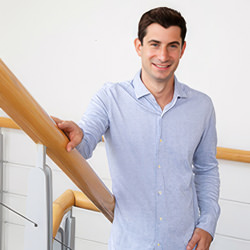
Kane Miller, Ph.D., Axitan
Endolysins as an antibiotic alternative for necrotic enteritis
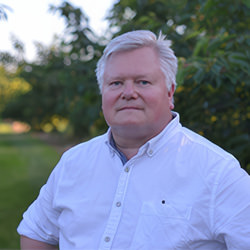
Paul Moyer, Clean Works Corp.
Alternatives to formaldehyde for decontaminating hatchery eggs

Keith Warriner, University of Guelph
Alternatives to formaldehyde for decontaminating hatchery eggs
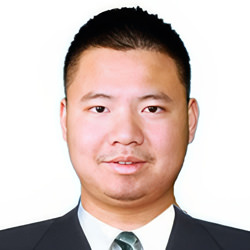
Bowen Cai, Shanghai Xiashu Intelligent Company
Artificial intelligence to automate broiler chick sexing

Marcel Sarzen, AGL Technology
Precision farming to streamline poultry operations
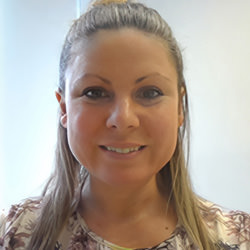
Meghan Bowman, Ancera
Next generation coccidia monitoring
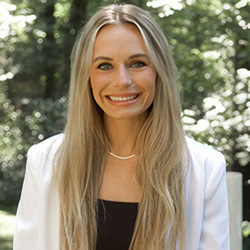
Kaitlin Karschner, Ancera
Deep serotyping to improve salmonella preharvest monitoring
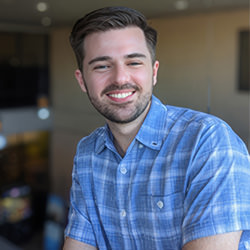
Tristan Bond, Agrinerds
Developing the next generation of poultry economics software
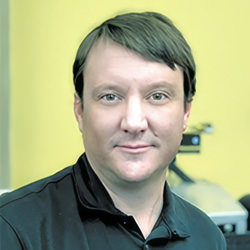
Colin Usher, Georgia Tech Research Institute
Strength and endurance of a robot and with the adaptability of a human
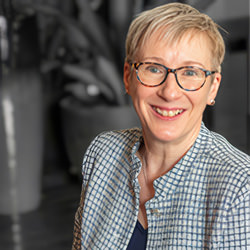
Caroline Forest, Intelia Technologies Inc.
Machine learning models for poultry weight forecasts

Casey Middlebrooks, Fieldale Farms Corporation
Machine learning models for poultry weight forecasts
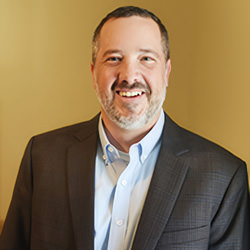
Rob Payne, Ph.D., Cargill Animal Nutrition
Digital tools to improve layer management and performance
2022

Evan Anderson, Agrinerds
Computer vision applications for counting, weighing eggs
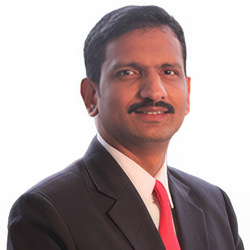
Shankar Jagdale, PakshiMitra Poultry Technologies
Solve automation challenges at the poultry farm

Daniel Lehmkuhl, Safe Food Corporation
Poultry scalder filtration for pathogen reduction
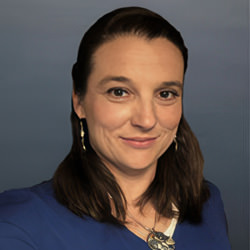
Kimberly A. Livingston, Ph.D., Optum Immunity
Egg yolk feed additive promotes poultry gut health
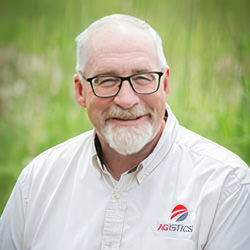
Mike Shindelar, CEO, DP Techlink
Traceability in poultry supply chain transport logistics
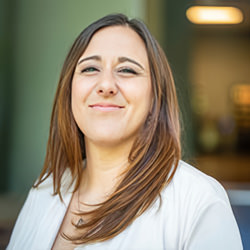
Gina Sloan, Ph.D., CEO, AGRITX
Harnessing the egg microbiome for early chick nutrition
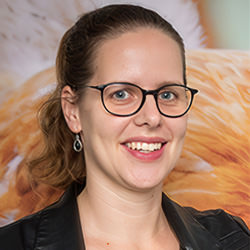
Anne-Jo Smits, Poultry Expertise Centre
A cooler approach to poultry transportation

Menashe Tamir, CEO, Eshet Eilon
Solving the broiler chick sexing conundrum
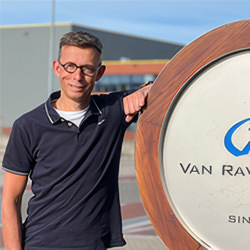
Dick van Ravenhorst, Van Ravenhorst Transport Solutions
A cooler approach to poultry transportation
2021

Peter Ahrendt, Ph.D., CEO, Animoni ApS
High-precision weighing of poultry using 3D camera technology
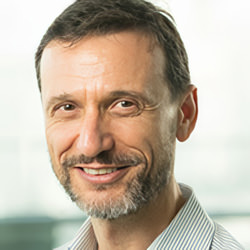
Inanc Birol, Ph.D., Amphoraxe Life Sciences Inc.
Antimicrobial peptides as a replacement for poultry antibiotics
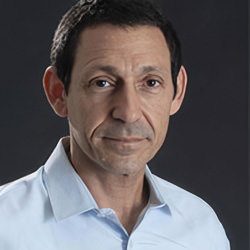
Yuval Cinnamon, Ph.D., Agricultural Research Organization, The Volcani Center, NRS Poultry Sustainability and Transformation
Genetic solution to the male layer chick problem
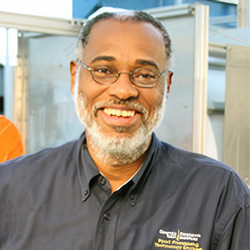
Wayne Daley, Ph.D., Georgia Tech Research Institute
Autonomous robot for breeder and cage free layer house management

Pedro Gomez, Orbem GmbH
AI-powered egg classification for contactless analytics in hatcheries
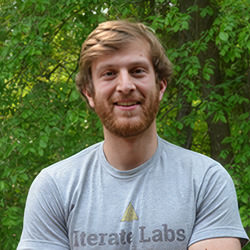
Jason Guss, Iterate Labs
Artificial intelligence to gamify poultry labor performance

Comas Haynes, Ph.D., Georgia Tech Research Institute
Kinematic enhancement for effective in-line, immersive chilling

Colin Usher, Georgia Tech Research Institute
Strength and endurance of a robot and with the adaptability of a human
2020
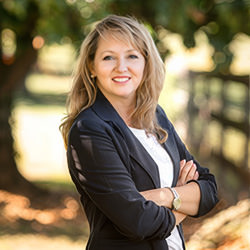
Joy Parr Drach, Advanced Animal Diagnostics
Could a new test predict COVID-19 in meat processing workers
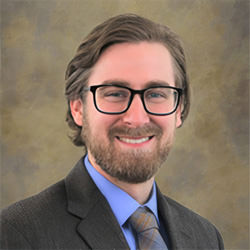
Gage Greening, Nanomatronix, LLC
Avian immunology dermatological test
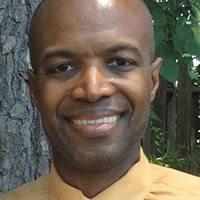
Comas Haynes, Ph.D, Georgia Tech Research Institute
Enhanced immersive chilling in poultry processing
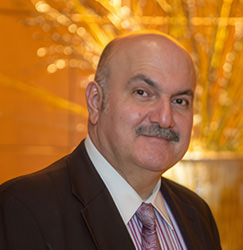
Ramin Karimpour, Applied LifeSciences & Systems
Precision technology to revolutionize protein production
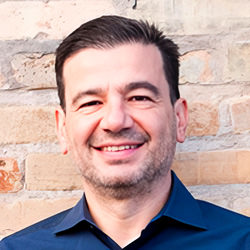
Yiannis Kaznessis, General Probiotics Inc.
Genetically modified probiotics

Shareem Khan, OpsSmart
Traceability at the speed of thought
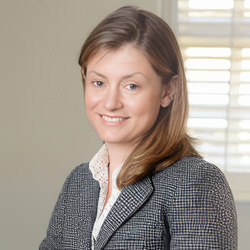
Claire Lewis, Pondus Technology
Remote sensing for crop uniformity and weight estimation
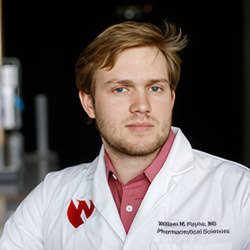
Will Payne, Simple Ag Solutions Inc.
Simplifying poultry feed additives
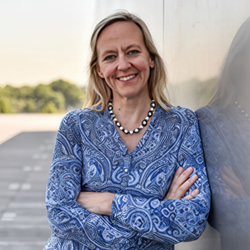
Maxine Roper, Connecting Food
How digital auditing advances blockchain
2019

Itamar Berchman, Agrowiz Technologies
Hatchery management system utilizing robotics, analytics for optimal results
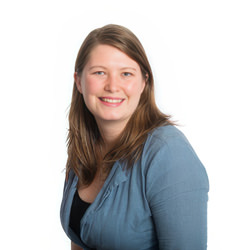
Caitlin Cooper, Ph.D., CSIRO Australian Animal Health Laboratory
Marker-assisted point of lay sex selection in chickens
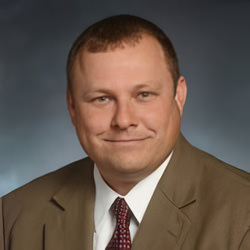
Craig Coufal, Ph.D., Innovative Poultry Solutions
Changing the way the world approaches egg sanitization

Yanne Courcoux, TIBOT Technologies
Lowering feed cost, improving broiler health with robots
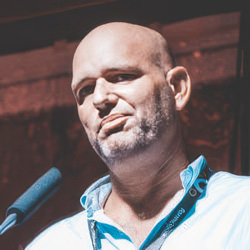
Miguel Damas de Matos, FarmCloud
Real-time poultry farm data collection, analysis to enable decision makers
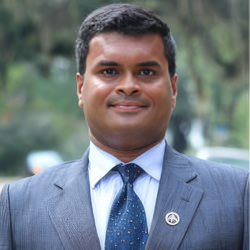
Satyanarayan Dev, Microsystems First Incorporated
Microwave pasteurization of shell eggs
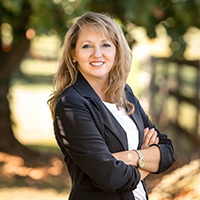
Joy Parr Drach, Advanced Animal Diagnostics
Automated rapid coccidiosis test: QScout Eimeria
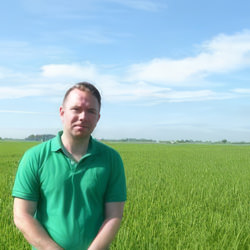
Shane Kiernan, Iamus
Using robotics to optimize broiler production
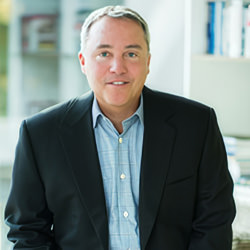
Michael Lanahan, Ph.D., Agrivida
Delivery of functional proteins for poultry health, nutrition via modified corn
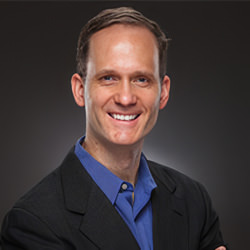
Christopher Lee, MTech Systems
Accurate prediction of broiler bird weight distributions using machine learning
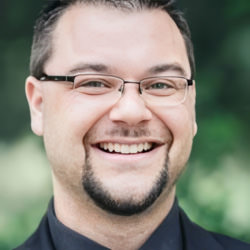
Roberto Taormina, ROTA Technologies
Automated self-learning vision technology for debris, contamination detection
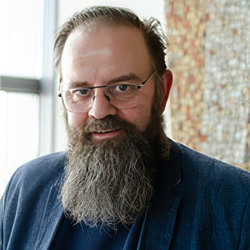
Jehan Verstappen, Via Versa Advies
CALIMERO: An in vitro chicken alimentary tract model
2018

Timothy Buisker, Smart Data Science Solutions LLC
Statistical process control with machine learning
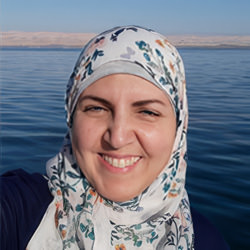
Dr. Neamat El Taz, Abuerdan Company
Improving live performance with big data predictive analytics
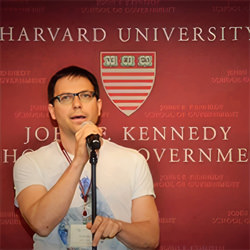
Yehuda Elram, eggXYT
Technology for in ovo sexing
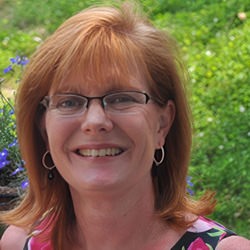
Jennifer Filbey, Mazen Animal Health Inc.
Technology edible poultry vaccines

Scott Huber, TyraTech Inc.
Phytogenic poultry gut parasite control
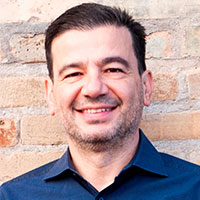
Dr. Yiannis Kaznessis, General Probiotics Inc.
New class of probiotic cultures
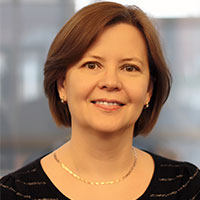
Olga Kemenova, Georgia Tech Research Institute
Simulation model for processing plant resource use
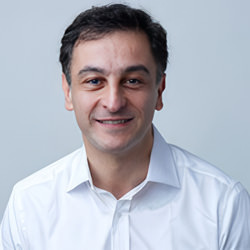
Dr. Ramin Khaksar, Clear Labs Inc.
Detection and serotyping Salmonella in 24 hours
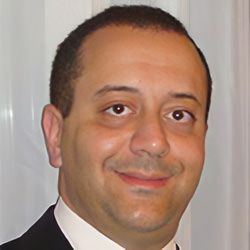
Islam Khalil, Abuerdan Company
Improving live performance with big data predictive analytics

Dr. Heiner Lehr, Faromatics Farm Robotics and Automation SL
Ceiling mounted poultry house robot
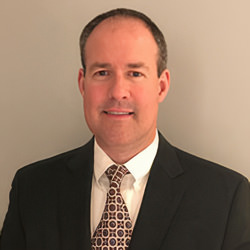
Dave Olson, Technicon LLC
Antimicrobial, rust-proof gear box for processing plants
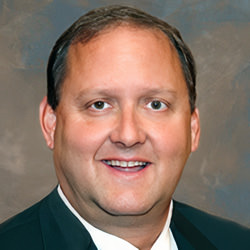
Albert Payne, Simple Vet Solutions Inc.
Traceable and transparent veterinary records

Joel Sotomayor, Transport Genie Ltd.
Data collection from poultry transport coops
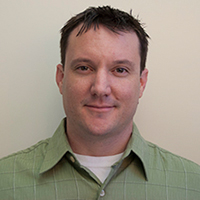
Colin Usher, Georgia Tech Research Institute
Floor operating poultry house robot
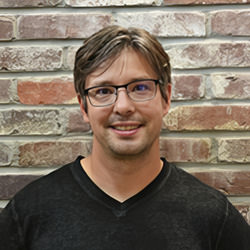
Bryon Western, Little Bird Systems
Feed bin inventory sensing
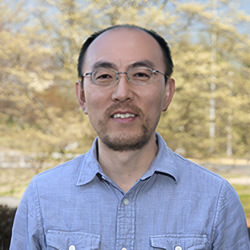
Seung-Chul Yoon, USDA ARS
Machine vision system for detecting woody breast
Sponsorship
Poultry Tech Summit 2025 sponsorship opportunities
Poultry Tech Summit is a global gathering where poultry professionals will learn about groundbreaking technologies and innovations while having the opportunity to meet with suppliers, customers and peers to advance business and exchange ideas.
Sponsorship opportunities at the Poultry Tech Summit take you beyond advertising and go further towards enhancing your company’s brand. Be among the first to sign up for sponsorship to maximize your exposure across multiple opportunities before, during and even after the event.
Become a Poultry Tech Summit 2025 sponsor to position your brand at the cutting-edge of innovation. View the 2025 Sponsor Prospectus
Contact your WATT Agribusiness Sales Manager today to confirm your sponsorship.
Top 3 reasons to be a part of the Poultry Tech Summit:
- Reach entrepreneurs, investors and innovators together at one time only
- Build new relationships and share ideas with poultry executive and those with industry interests
- Gain insights into new technologies on the horizon creating change and greater efficiencies in poultry production
ABOUT WATT GLOBAL MEDIA
Poultry Tech Summit is presented by WATT Global Media. WATT Global Media grows agrifood and pet food businesses with proven results for over 100 years. Access the market expertise, engaged audiences and targeted solutions that lead to successful connections in the poultry, feed and pet food markets. With WATT Global Media, gain a global advantage in implementing dynamic marketing solutions through innovative technology and delivery channels.
Stay informed on updates for Poultry Tech Summit 2025!






















